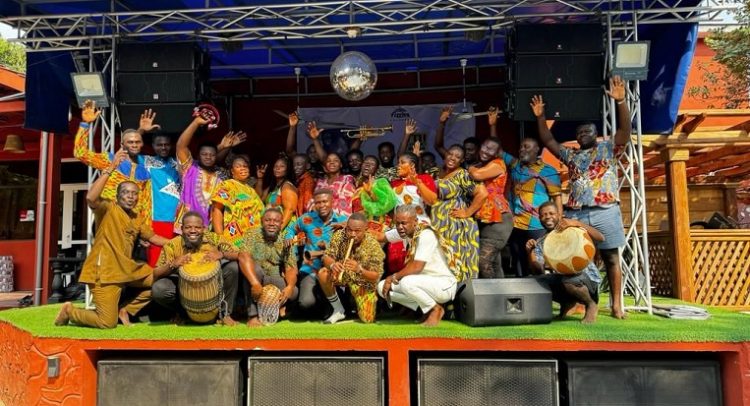Etumpan Cultural Band
It’s been the Etumpan Cultural Band’s aim since its formation in 2018, to project music that adequately reflects Ghana and Africa, and that’s what has attracted some promoters in Canada and the United States to get the band to tour those places between April and July, 2024.
With a lineup that incorporates a variety of traditional African instruments such as Atenteben, Dondo and Fontomfrom drums with standard Western equipment, the band has carved out a blend of sound expressly their own.
Their repertoire takes root from local rhythms like Adowa, Kpatsa, Agbadza, Apatampa and Kpanlogo which they turn into scintillating Highlife and other contemporary styles.
According to the band’s leaders, Michael Forson and Richard Korang, who are multi-instrumentalists, songwriters and producers, Afromondo Promotions would handle the United States leg of the tour while the Batuki Music Society in Toronto takes care of the Canada end.
“The band is made up mainly of Ghanaian musicians, but there are a few others from across West Africa and their input add exciting flavours to our repertoire. Africa is full of rhythms and we don’t hesitate to employ those that fit well into our mission to let everyone know how our continent has endowed the rest of the world with great musical resources,” the band’s leaders disclosed.
The band’s music is heavily influenced by greats such as Kofi Ghanaba and Okyerema Asante from Ghana and Fela Anikulapo Kuti from Nigeria.
A deeply culturally-rooted band, the Etumpan Cultural Band’s repertoire are rendered in a variety of Ghanaian languages such as Twi, Ga and Ewe as well as bits from other African languages.
These are often spiced with some English and French.
Apart from putting out infectious African rhythms, the band’s membership includes dancers who always showcase intricate movements, thus adding more sparkle and style to their live appearances.
“Our overall appearance and output are culturally unique. That’s why we believe people who will come to see us in Canada and the United States would walk away with wonderful insights into Ghanaian and African culture,” the band’s leaders stated.
By George Clifford Owusu


